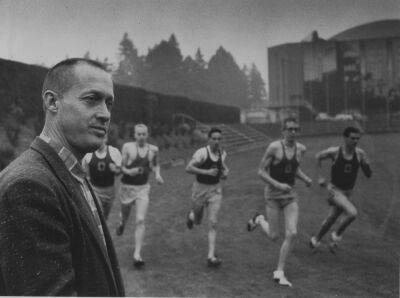Meet the Canadian hockey legend who defied danger to help Soviet Jews
Episode originally aired May 9, 2021.
Growing up in a small Jewish community in Semans, Saskatchewan, Bassin fell in love with hockey. But their father had insisted that Bassin get an education, saying "Hockey, Schmockey. You're going to school!"
"I was very realistic. I wasn't good enough to be a pro player, so I realized early enough that I'd better get an education," says Bassin.
Bassin earned a Juris Doctorate, a Masters in hospital administration and a Ph.D in pharmacy. He spent decades as a college professor, pharmacist, junior hockey coach and team general manager. He also worked as a television color commentator and served as assistant general manager of the NHL's Quebec Nordiques.
But it was his work as assistant coach and general manager of Canada's junior national team that would lead to one of his greatest accomplishments.
In 1982, Bassin's first year as general manager and assistant coach, Team Canada won a gold medal at the World Junior Ice Hockey Championships. The following year, he helped assemble another strong roster that included future NHL legends and eventual Hall of Famers Mario Lemieux, Dave Andreychuk and Steve Yzerman. As the team was training in Canada in preparation for the 1983 World Juniors in Leningrad (now St. Petersburg), he got an idea.
In the early 1980s, religious practice was officially tolerated in the Soviet Union. But Bassin had learned that travel restrictions on Soviet Jews and state crackdowns on printing houses had made it difficult for them to acquire new Siddurim, or Jewish prayer books. And it was nearly impossible to get new prayer shawls, or Tallesim. Since Jewish men are buried in them, there was a dwindling supply all over the country.
In late 1982, Bassin decided




